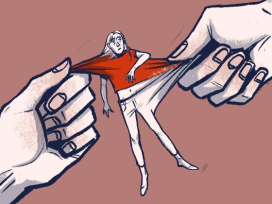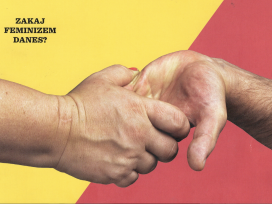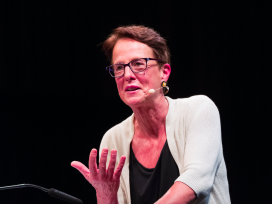Feminist reads for Women's Day
Read up on feminist topics from theories of sexual violence to political strategies for women’s advancement and history from a female perspective for Internaational Women’s Day (8 March).

Photo source: unsplash.com
Theory
Ann J. Cahill says there is a distinction between rape and ‘unjust sex’, when a woman is pressured into sex but her agency still plays a role, a term used to address the grey areas between unwilling yet consensual sex and outright sexual violence:
Ghalia Djelloul, meanwhile, asks whether feminist critique can intersect with religion, particularly Islam:
Sex work will disappear when capitalism is abolished, says Amaranta Heredia Jaén. Until then, however, we have to start talking about it as work and begin to address the question of labour rights:
History
In a blow to some misconceptions, Margaret R. Higonnet argues that changes in gender roles during and after the two World Wars were more limited than is often thought. ‘The more things change,’ she says, ‘the more they remain the same’:
‘When is change not change?’
An interview with Margaret R. Higonnet on gender relations and the First World War
This isn’t the only misconception out there, though. In an interview with Metka Mencin Čeplak and Mirijana Ule, Emica Antončič focuses on liberal feminism’s blindspots and the consequences of women’s commodification:
Katharina Lux looks at the impact of feminist magazines in the ’80s and ’90s:
Against the violence of positivity
The magazine ‘Die Schwarze Botin’
Movement
Wendy Brown prioritizes determination before hope in an interview with Jo Littler:
Where the fires are
An interview with Wendy Brown
Londa Schiebinger talks bias in biology and culturally induced ignorance:
The cause of women is the cause of civilization, and it must allow for different takes to co-exist, writes Aloma Rodríguez:
Published 7 March 2019
Original in English
First published by Eurozine
© Eurozine
PDF/PRINTNewsletter
Subscribe to know what’s worth thinking about.
Related Articles

Women’s rights activists protesting for a democratic Iran counteract armed police on the streets with non-hierarchical leadership, a rhizomatic network, transnationality and flash mobs. Their momentum, supported globally via the Iranian diaspora, also benefits from a legacy of historic feminist action under extreme oppression.

While opportunities to denigrate one’s own physical appearance abound from an early age, eating disorders remain surrounded by stigma and lack an adequate vocabulary. From high school to pandemic isolation, a Romanian woman recounts eight years of grappling with anorexia.












